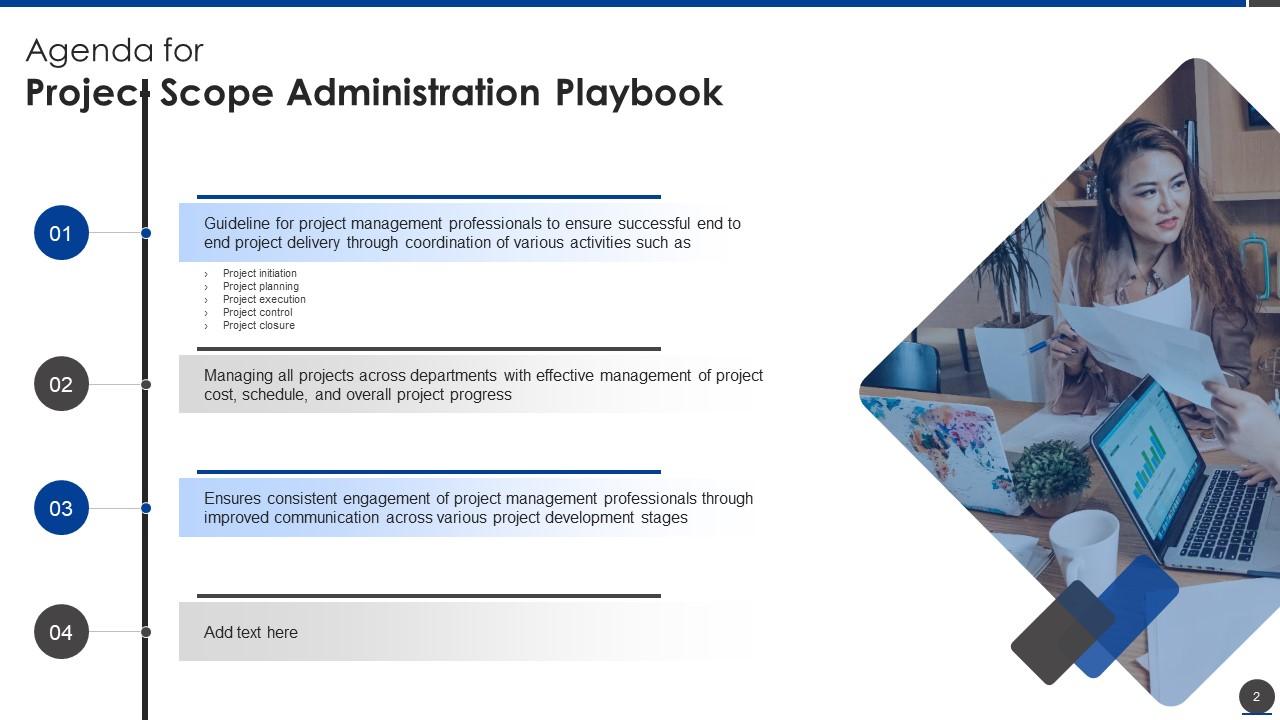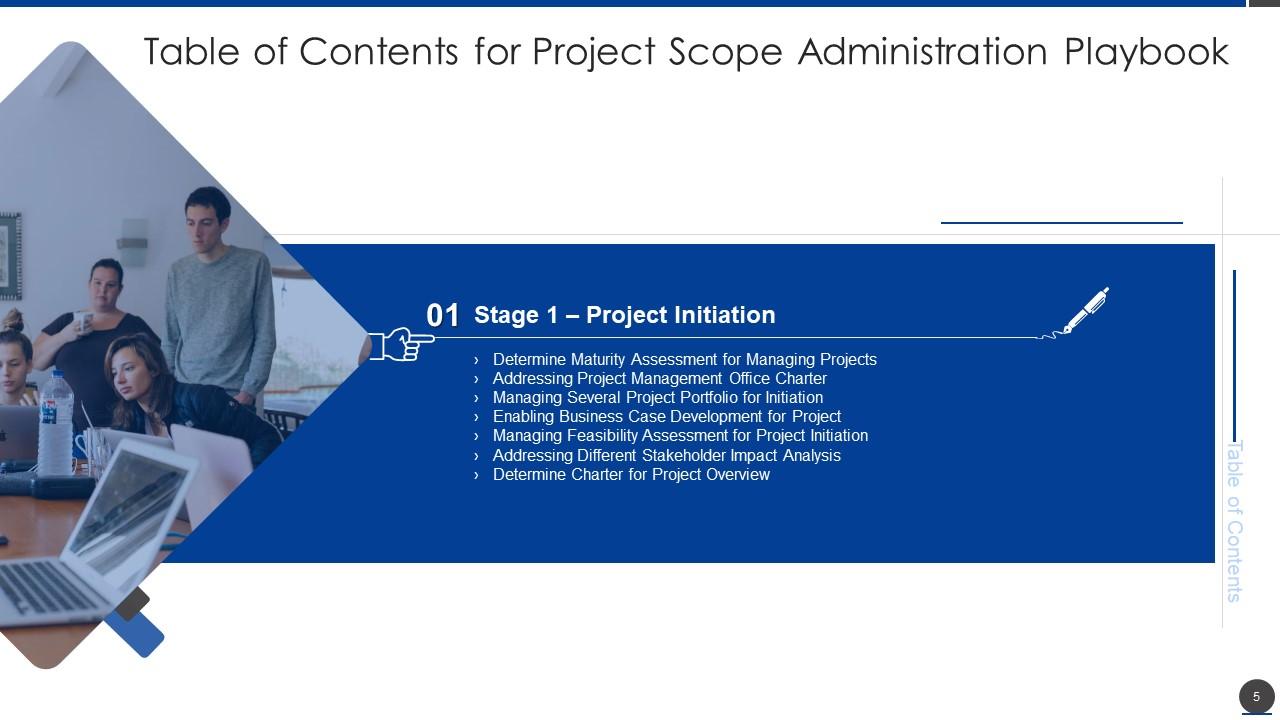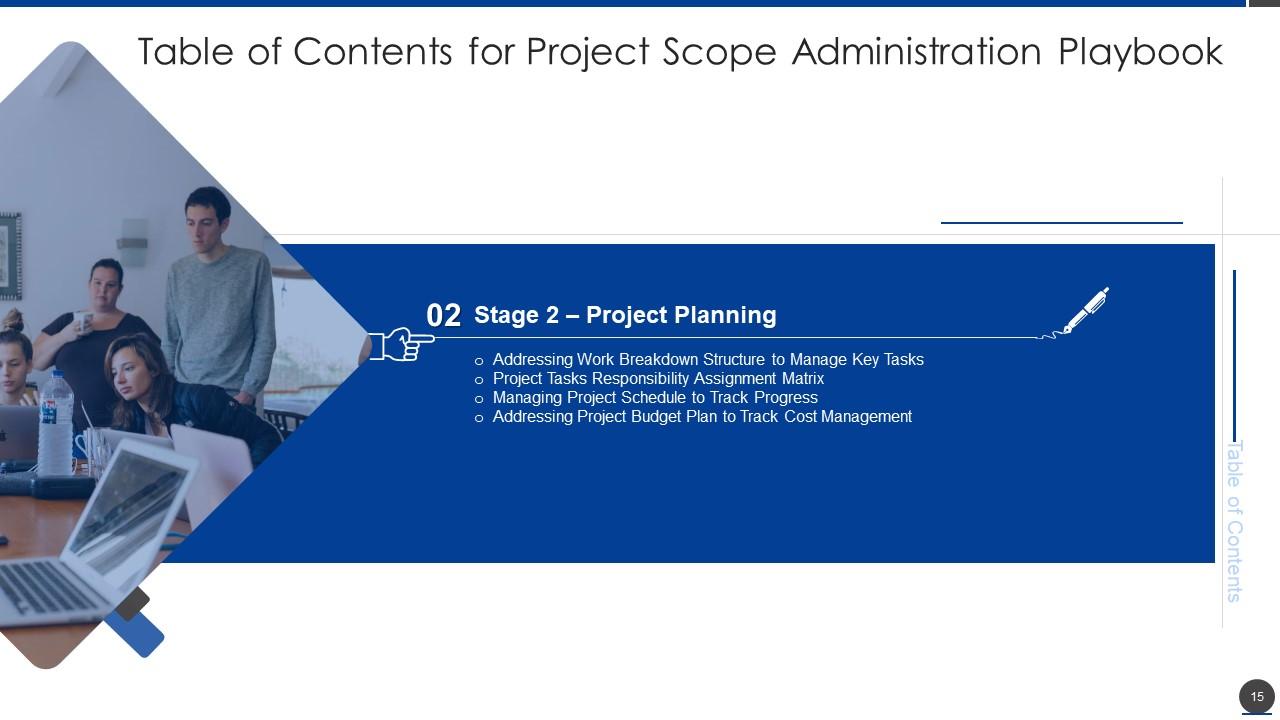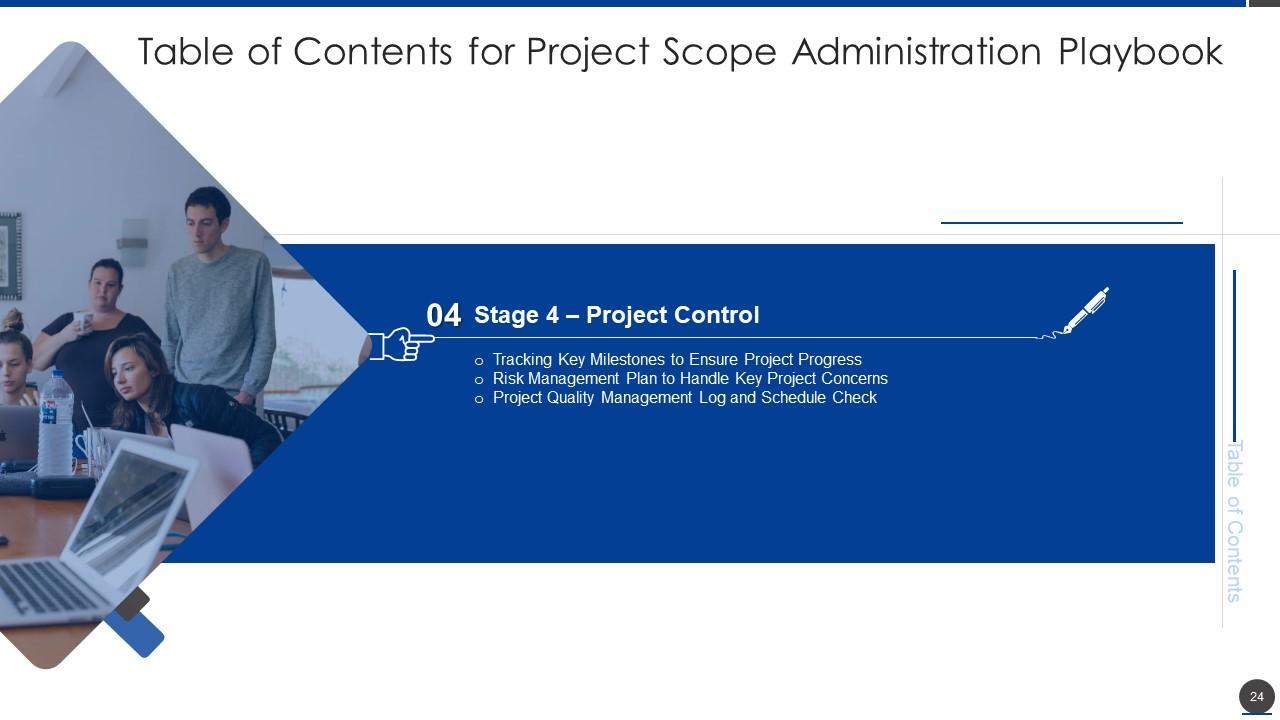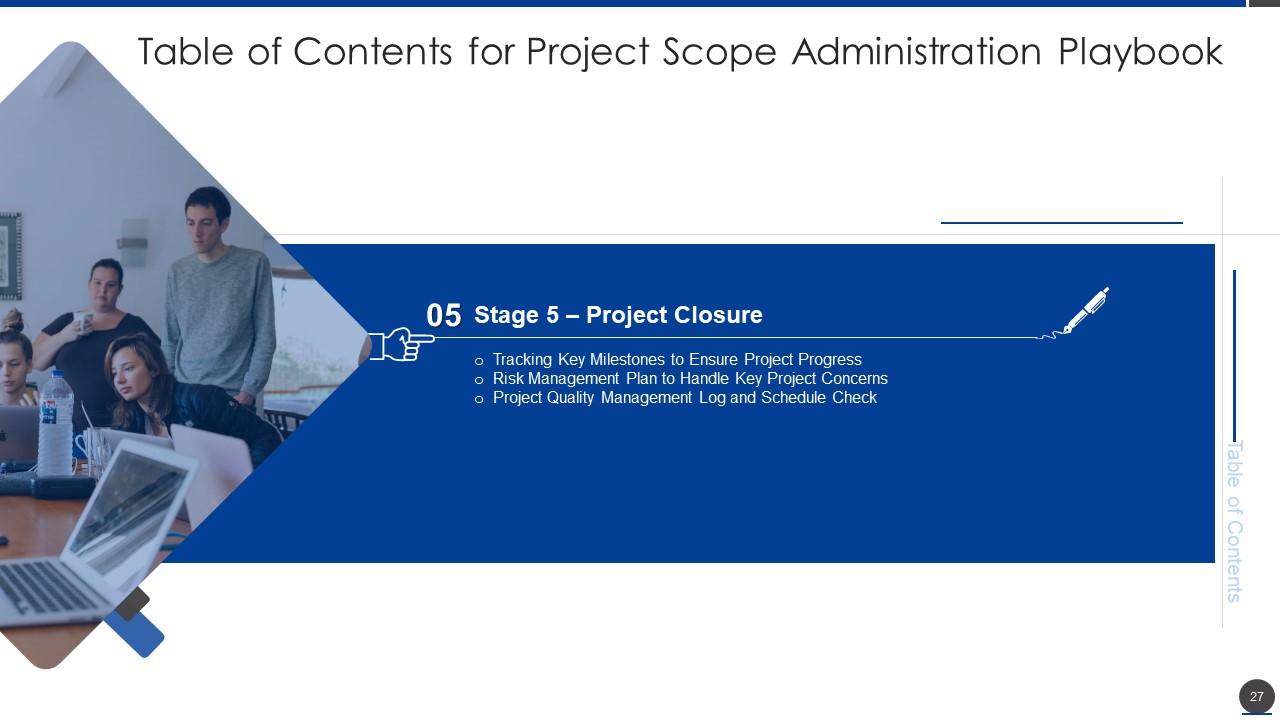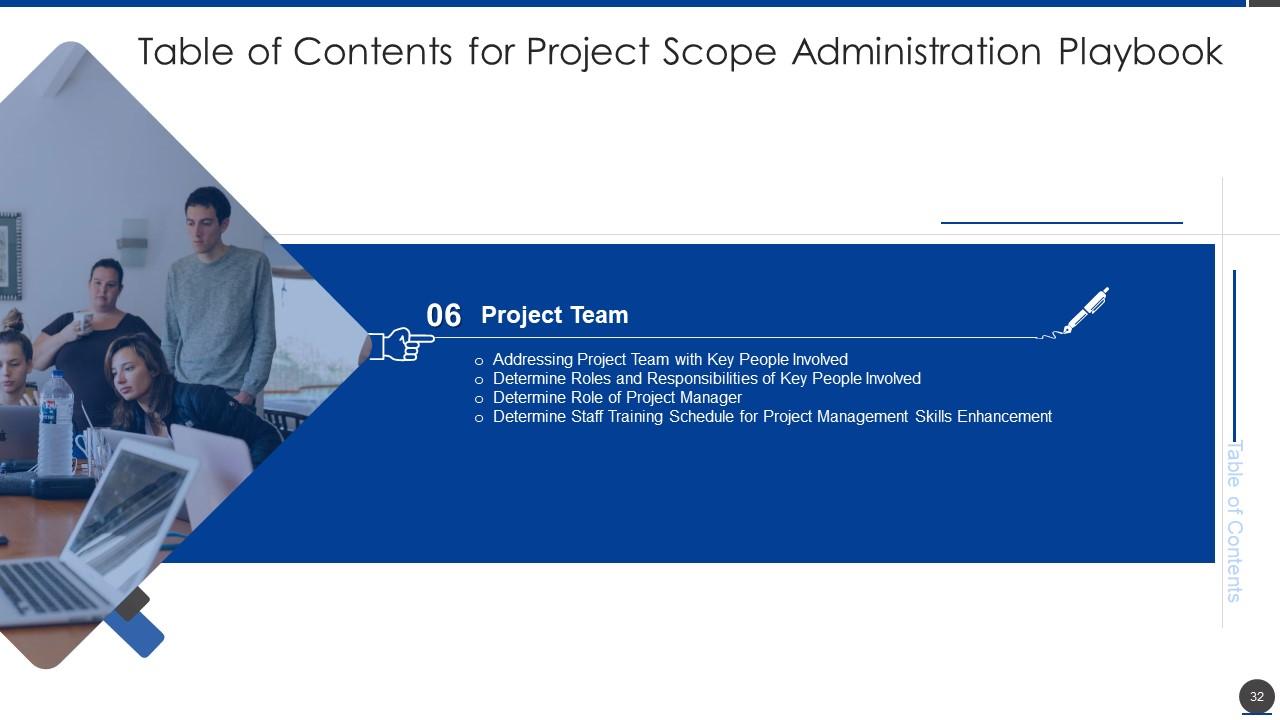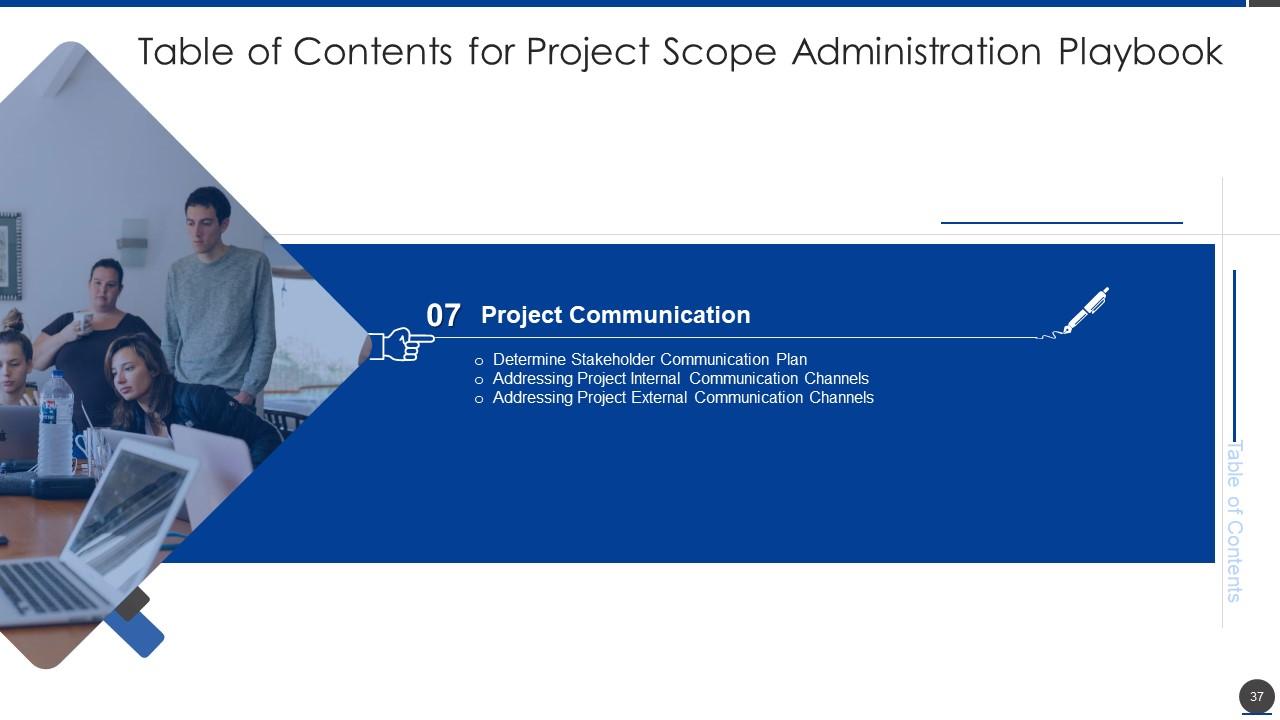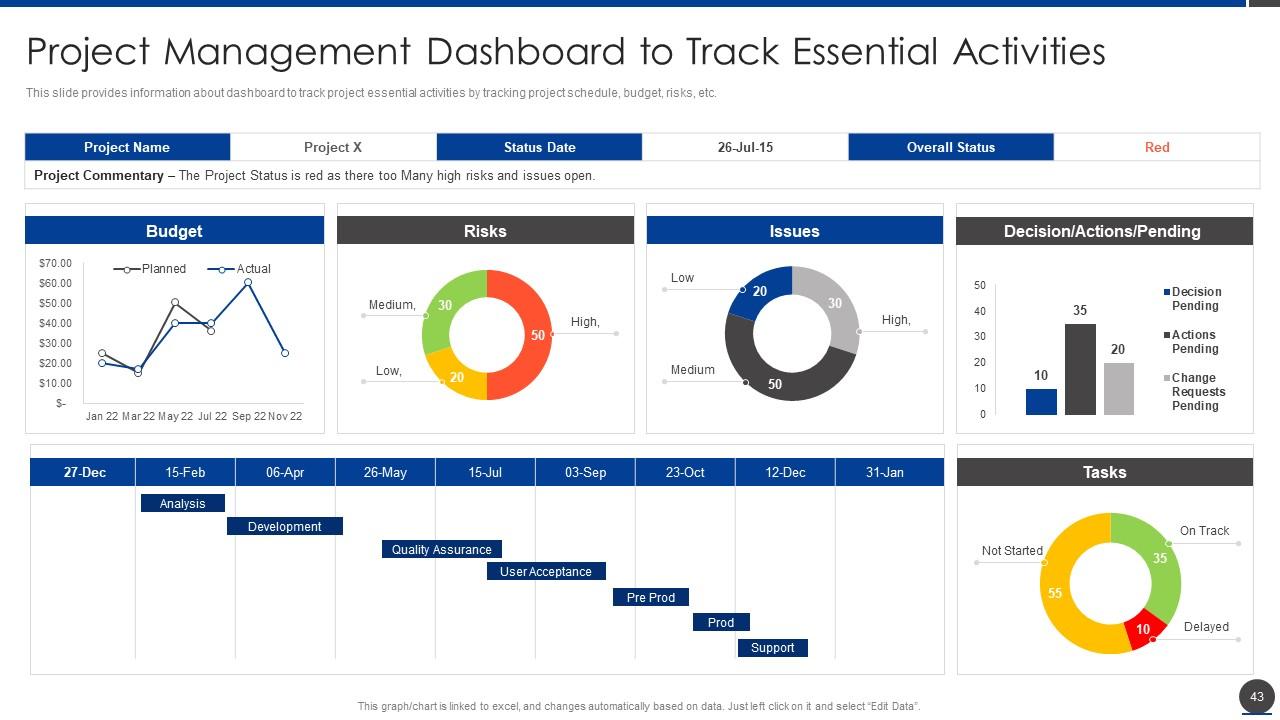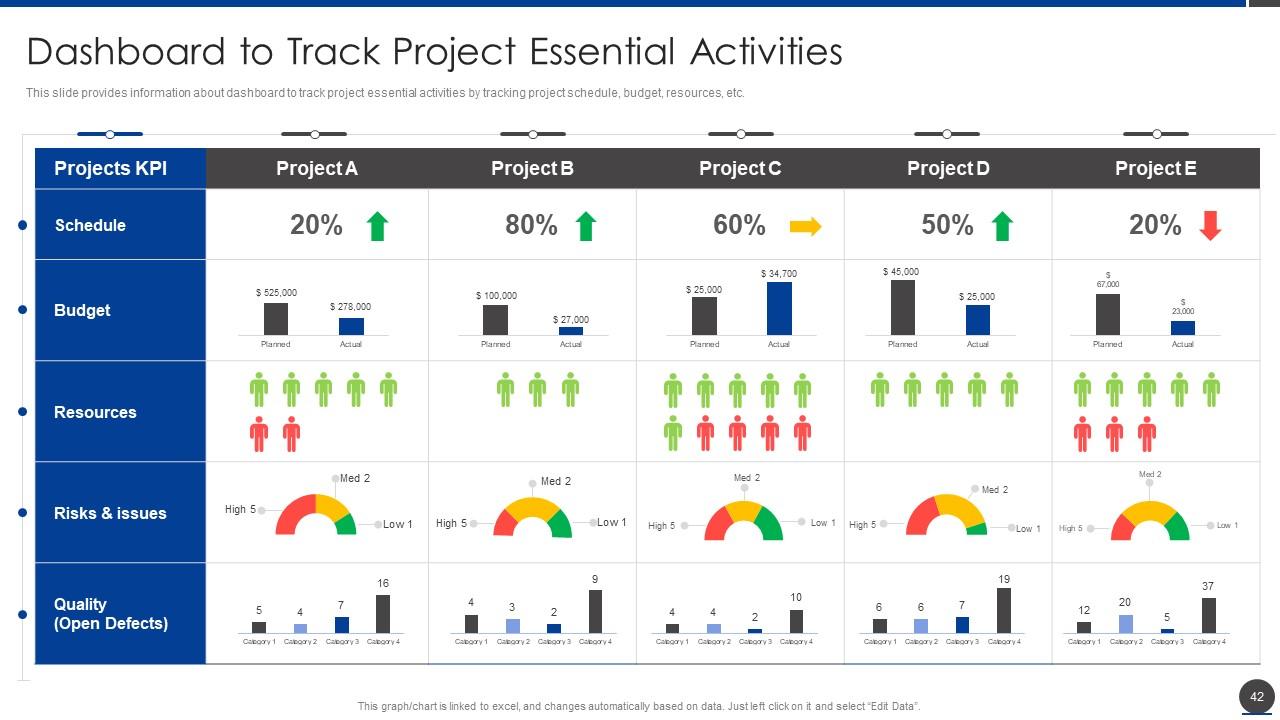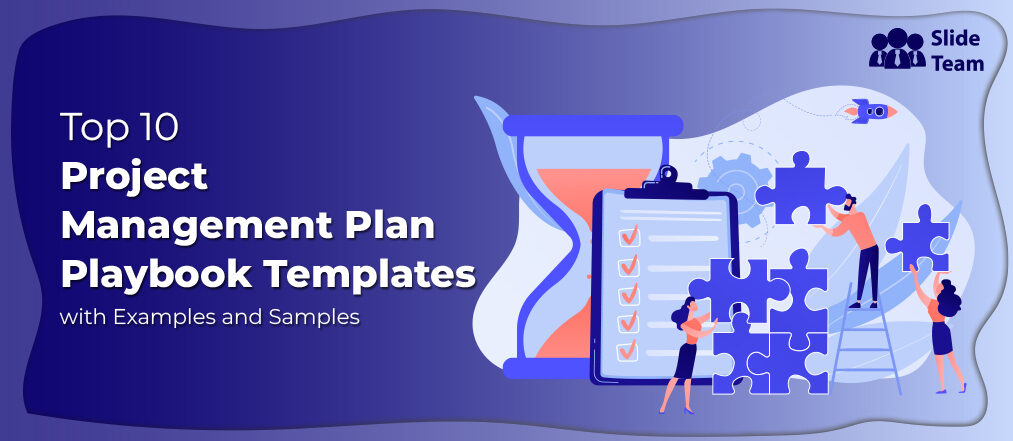In the vast arena of project management, where planning, execution, and communication intertwine, Project Scope Administration is the defining force. It's the compass that guides a project team through the challenges of development, ensuring every aspect stays on course. The result: Exceptional outcomes. We bring you an opportunity to harness this power like never before with our Project Scope Administration Playbook Templates!
Why are these templates an absolute must for all project managers?
Picture this: You embark on a project journey armed with enthusiasm, expertise, and a dedicated team. But, as the complexities of project development unravel, communication lines tangle, goals become blurred, and chaos looms on the horizon. How do you regain control, ensuring that each task aligns with the objective and that every team member moves in sync? This is where our Project Scope Administration Playbook Templates are of value, offering a lifeline to ensure the project delivers its aim.
Project Scope Administration Playbook: Your Project Management Powerhouse!
Our thoughtfully-crafted PPT Designs empower you to articulate project objectives, define boundaries, and delineate deliverables with utmost clarity. From creating foolproof project plans to establishing effective communication channels, our PPT Slides cater to every aspect of project scope administration. Gone are the days of haphazard progress and misaligned team efforts. Our PPT Templates will be your guiding light, illuminating the path to seamless project execution. Each of the templates is 100% customizable and editable. The content-ready nature offers a much-coveted structure and a starting point. The editability feature means you can customize the template according to audience requirements.
Let’s explore!
Template 1: Agenda for Project Scope Administration Playbook
The Agenda section serves as a comprehensive guide for project management professionals, offering essential guidelines for ensuring successful delivery. It emphasizes the importance of effectively managing projects across departments, promoting collaboration and coordination. This section outlines key strategies and best practices for defining project objectives, establishing clear communication channels, identifying and managing risks, and ensuring efficient resource allocation.
Template 2: Project Initiation
The Project Initiation Stage in this playbook encompasses essential aspects of project management. It begins with a thorough maturity assessment, evaluating the organization's readiness to undertake new projects. This stage also emphasizes managing project portfolios, ensuring that the right projects are selected for initiation based on strategic alignment and available resources. Feasibility assessments play a critical role in analyzing each proposed project's viability and potential risks. This stage establishes a solid foundation for successful project execution and delivery.
Template 3: Project Planning
The Project Planning Stage is a crucial phase within this playbook. It encompasses:
1. The work breakdown structure provides a systematic breakdown of the project's tasks, enabling clear identification and understanding of project components.
2. The task responsibility assignment matrix establishes accountability by assigning specific responsibilities to team members, fostering effective collaboration.
3. The project schedule outlines the timeline and sequencing of tasks, facilitating efficient project execution.
4. The project budget outlines the financial resources required for successful project completion.
These elements, collectively, form the foundation for a well-organized and successful project plan.
Template 4: Project Execution
During the Project Execution Stage, the emphasis is on effectively monitoring and managing progress. This section highlights the significance of project status reports, which provide comprehensive insights into the project's current status. Additionally, it emphasizes tracking milestones to evaluate progress accurately. Project teams can ensure that the project stays on track, identify potential issues early on, and make informed decisions to achieve successful project outcomes. The key is the effective implementation of these practices.
Template 5: Project Control
This stage encompasses project quality management, schedule management, and risk management. The project quality management log enables the tracking and documentation of quality-related activities and ensures that project deliverables meet desired standards. Schedule management ensures efficient time allocation, adherence to deadlines, and the completion of milestones within deadlines. The risk management plan identifies potential risks, assesses their impact, and outlines strategies to mitigate them, enhancing project success and minimizing potential setbacks.
Template 6: Project Closure
Within the comprehensive Project Scope Administration Playbook, the Project Closure Stage assumes a pivotal role. This crucial phase emphasizes the preparation and utilization of the project acceptance document, ensuring successful approval. Additionally, it highlights the significance of conducting a thorough post-project assessment to evaluate the project's outcomes and identify areas of improvement. Moreover, the section underscores the importance of addressing lessons learned from the post-project evaluation, facilitating continuous enhancement and knowledge transfer for the future. By effectively implementing these practices, the project closure stage guarantees a comprehensive and informed conclusion to the project lifecycle.
Template 7: Project Team
The Project Team section of this playbook provides a comprehensive overview of key individuals involved in project execution. It outlines respective roles and responsibilities, ensuring a clear understanding of each team member's contribution to the project's success. Additionally, it establishes the role of the project manager, highlighting their leadership and coordination responsibilities in driving the project forward. By defining the project team and clarifying their roles, this section sets the foundation for effective collaboration, communication, and accountability throughout the project lifecycle.
Template 8: Project Communication
The Project Communication section within the Project Scope Administration Playbook serves as a compass for navigating effective stakeholder engagement. This pivotal segment charts out the course for internal and external project communication channels. Meticulously crafted, it lays the foundation for an intricate web of information exchange, ensuring stakeholders remain informed and actively involved. From the selection of the most suitable communication methods and mediums to fostering seamless collaboration, transparency, and alignment, this section empowers teams to orchestrate successful project execution while leaving stakeholders genuinely satisfied.
Template 9: Project Management Dashboard to Track Essential Activities
This dynamic and intuitive project management dashboard will help to track and monitor every aspect of your project scope administration, ensuring that nothing falls through the cracks. It provides a centralized hub where you can monitor key tasks, milestones, timelines, and deliverables. With this presentation design, you will have a clear and concise overview of your project's scope administration. This project dashboard gives you a ringside view of project progress, budgeting, and risk management with charts and graphs. Download it now!
Template 10: Dashboard to Track Project’s Key Activities
This project scope administration dashboard allows you to stay on top of essential activities paramount to project success and revolutionizes how you track and manage crucial project tasks. It provides a comprehensive and easy-to-read overview of multiple projects with interactive charts, graphs, and customizable widgets. Use this well-organized project dashboard to track and manage schedule progress, resource allocation, budget (allocated vs. spend), risk & issues (severity levels), resources, and quality, all in one place. Download it now!
Transform Your Project Management Journey!
The time has come to transform your project management approach. Download our Project Scope Administration Playbook Templates today and embark on a journey where chaos turns to order, confusion gives way to clarity, and success becomes your steadfast companion.
FAQs on Project Scope Administration
What is a playbook in project management?
In project management, a playbook refers to a comprehensive set of guidelines, templates, and best practices that serve as a roadmap for executing projects successfully. It provides a structured approach and standard procedures for project teams, ensuring consistency and efficiency throughout the project lifecycle. A playbook includes templates for project planning, communication strategies, risk management, documentation, and other essential aspects of project administration.
How do you write a project administration?
Writing a project administration involves these key steps to ensure effective management and execution of a project. Here is a general outline:
- Define Project Objectives: Clearly articulate the project's goals, deliverables, and desired outcomes. This provides a foundation for all project administration activities.
- Plan Project Activities: Develop a detailed project plan of tasks, timelines, resource allocation, dependencies, and milestones. This plan acts as a roadmap to guide the project team throughout the project's duration.
- Establish Communication Channels: Create effective communication channels to ensure seamless collaboration and information sharing among team members, stakeholders, and other relevant parties. This includes regular meetings, status updates, and documentation of important project-related information.
- Monitor and Control: Implement mechanisms to monitor project progress, track milestones, and manage risks. Regularly assess the project's performance against established metrics and take necessary corrective actions to keep the project on track.
- Document and Report: Maintain comprehensive documentation throughout the project lifecycle, including project plans, meeting minutes, status reports, and change requests. These records provide a historical reference and aid in project evaluation and future improvements.
- Closure and Evaluation: Facilitate project closure by conducting post-project evaluations, identifying lessons learned, and documenting successes and challenges. This phase ensures a smooth transition to project closure and facilitates continuous improvement.
What are project administration tasks?
Project administration tasks encompass activities involved in managing and overseeing the project's administrative aspects. Some common project administration tasks include:
- Establishing project objectives and goals
- Developing project plans and schedules
- Allocating resources and managing budgets
- Defining project roles and responsibilities
- Facilitating effective communication among project stakeholders
- Monitoring and tracking project progress
- Managing risks and issues
- Documenting and maintaining project records and documentation
- Conducting project meetings and facilitating collaboration
- Coordinating project-related activities and ensuring adherence to timelines
- Managing project changes and scope creep
- Facilitating project closure activities, including evaluation and lessons learned.


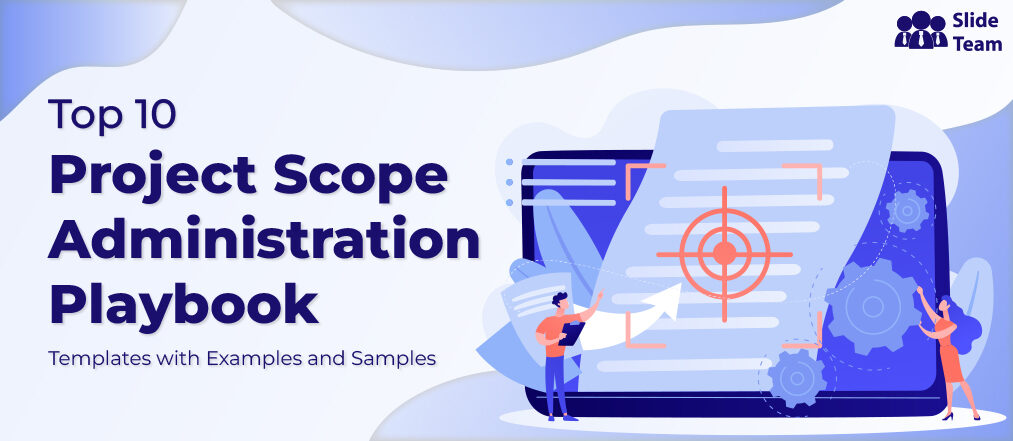
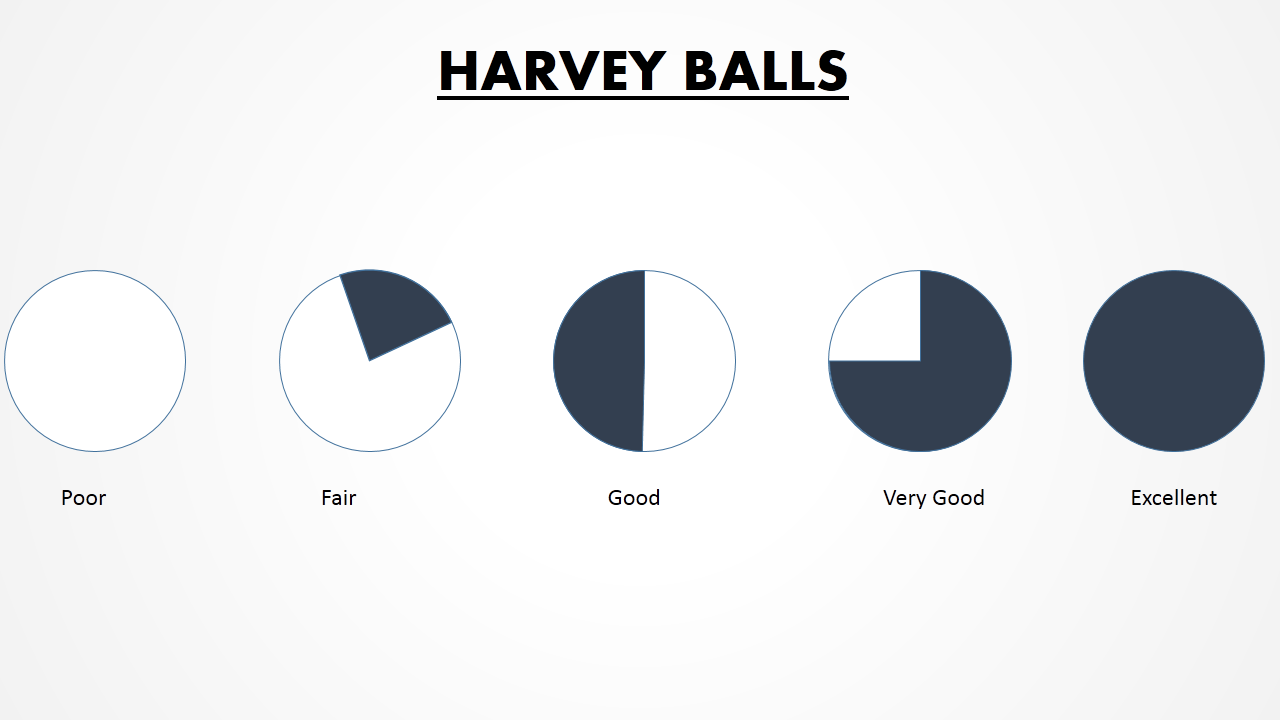

 Customer Reviews
Customer Reviews

